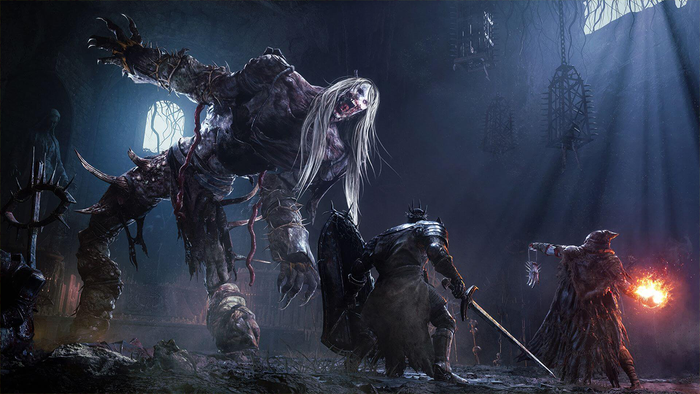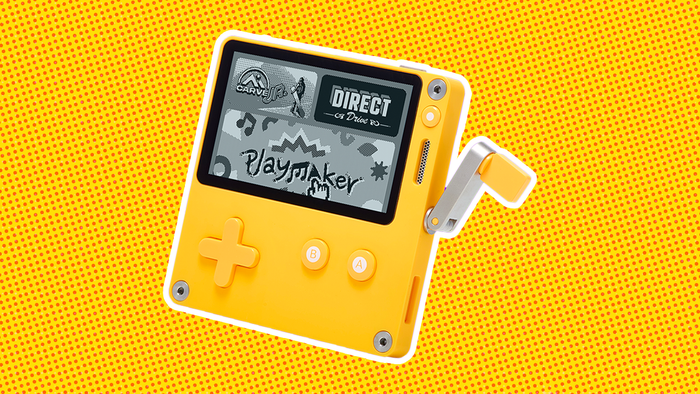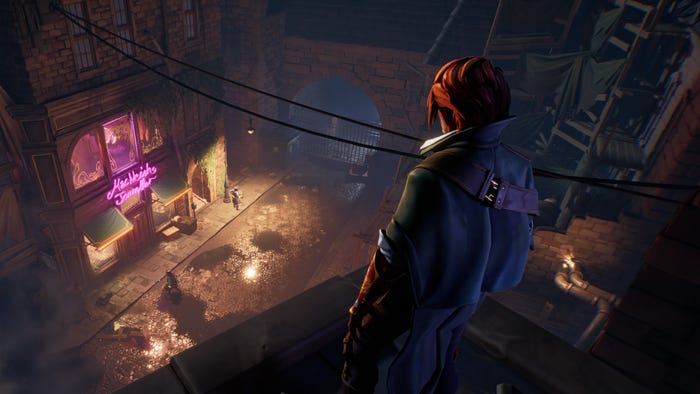Iain Angus, development manager at Alien Isolation developer Creative Assembly, offers quick-hit advice for game devs at the start, middle, and later parts of their careers.

Iain Angus is development manager at Creative Assembly
A career in the games industry, for most, will involve applying for jobs at several studios over the course of many years. A recent survey found that on average, employees in the games industry have had 2.2 employers in the last five years. This means that most people in the industry find themselves applying for a new job every couple of years. There are exceptions to this of course and many studios provide long, stable and happy careers for their employees. Even so, the skills needed to navigate your career path are useful for everyone.
I have changed jobs five times in my career so far, including moving sideways to new specialisms twice. Some of those times it was by choice, others it was forced by studio closures. More recently I’ve seen the other side of the hiring process and in the last year I have reviewed over 1,000 job applications and interviewed dozens of applicants. Throughout this time, I’ve frequently seen applicants make the same mistakes with how they present their job application, in interview, and the decisions they have made about their careers.
Wanting to help all these people prompted this article. Having seen both sides of the hiring process for large studios has given me some perspective that I hope will be useful for those wanting to start and maintain a career in the games industry.
Getting in

The stereotype is that it is difficult to get into the industry and, while that can be true, there are several things you can do to make it easier for yourself. There are more and more entry level, graduate or trainee roles at larger studios like Creative Assembly, and these are an obvious place to start. There can still be a lot of competition, so the more you can do to stand out, the more likely you are to be hired.
To help you stand out, it is worth considering why studios hire people in the first place: they have work that needs to be done and the only way of getting that work done is to hire people who have the skills to do it. Hiring people comes with risks for the studios such as the possibility that a new hire turns out not to be skilled enough to do the work. To get hired you must show that the upsides of hiring you and the skills that you bring to a studio greatly outweigh any potential risk. Experience always helps because it is the best evidence that you will be a productive employee, and because most useful skills are learned on the job.
How specialized you make your skillset and what specialisms you choose will affect how easy it is for you to find a job. If you are over-specialized, you will limit the number of roles available to you. For example, if your primary skill is designing driving handling models for racing games, there aren’t many studios where this skill is relevant, and they may not be looking for new recruits. Conversely, if your skillset is too broad, your application will not look as strong as those from people who have specialized for the roles you are applying for. Which specialism you choose will also affect how easy it is for you to get hired. Some specialities are more popular than others and this creates more competition for the roles available. Concept art and environment art roles get a lot more applications than for UI art. The point is that if you choose a less popular speciality, your chances of getting hired are greater.
Assuming you have the right skills and experience for the role you are applying for – what then? Just because you are suitable for the role does not mean the person reviewing your application knows this. It’s your job to show them. The content of your application needs to make it extremely clear what you are capable of. Ensure that your best work is front and center of your portfolio, so visitors do not have to search for it. Get as much advice as you can find on how to write and structure a CV/Resume so that is relevant and clear, and always tailor your cover letter for the specific studio and role.
Next you will need to navigate the hiring process and each studio has a different way of managing this. Many like to talk to candidates over Skype before meeting them in person. Some bring groups of candidates in at the same time. There is often some sort of written test, either done at home or as part of an in-person interview. I was once even offered a job after an hour-long instant message text chat, without even speaking to anybody! Whatever the process is, always remember that you are trying to convince the interviewers that you are the best person for the job. Your portfolio aside, you need to be able to talk about your work passionately and in depth. This is a large topic and there are many resources on interview technique out there that are well worth a look.
If you don’t succeed at first, keep trying and learn from the feedback you receive. I’ve seen too many applications from people who graduated a couple of years ago, have worked in non-game related jobs ever since without continuing to develop their skills or portfolio. If you keep learning relevant skills and creating games in your spare time, your applications will become stronger over time. Eventually you will get that first job and you are ready to move to the next stage.
Mid-career

Now you have landed your first job making games, your priority is to do excellent work and make good on the potential you showed during the recruitment process.
If you are lucky, you will have landed at a place where you can stay for several years. Good studios will help you manage your career by giving you the support and training you need to improve your skills and rise through the rank. Others may take a more short-term view and will ask you to use the skills you already have on their current project without giving you the opportunity to improve or develop.
To stay making games for the long term you must be continually learning, or your skills will be made irrelevant by the continual change in the industry. If you find yourself in a situation where you aren’t improving, ask for support where you are and, if it is not forthcoming, you need to think about whether that’s the right studio for you. It might seem crazy to leave a job after you put so much effort into getting there in the first place, but you run the risk of getting stuck.
When looking for a new job you need to evaluate potential roles to make sure that you not only have the skills for the role, but also that you will enjoy the work and culture and that you will continue to learn and develop. Interviews are a two-way process and candidates should be evaluating potential employers just as much as the other way around. Asking questions about the work you will be doing and the environment you will be working in is essential to making sure that the role helps you achieve your goal of a long and productive career in games.
Sideways moves from one specialism to another are more common than you might think and are a good option if you find yourself not enjoying your current role. I’ve done this twice, from programming to design then from design to production. Good studios will recognize if you have skills in other areas and will make this type of move possible, others will require some persistence and negotiation to make this happen. Working in a new discipline will certainly bring new challenges and opportunities to develop new skills and can be great for your career. Beware though that after switching you will have fewer years of experience than you did in your previous role and you may need to accept more junior positions when you move to a new company. Taking a job purely as a stepping stone to something else is also risky if you aren’t sure that the new role is right for you.
Some roles you come across will be fixed-term contracts and I had one of these for just over a year. They can be a useful option if your personal circumstances are suited to freelance work or if there aren’t any full-time roles available. My advice to anyone considering a non-permanent role is to make sure you understand all the terms of the contract and the tax implications of the country you are working in.
Late-career

Priorities change as you get older; I thought this would never happen to me, but it did! Changes in your personal circumstances (spouses and families being the most common) have an inevitable impact on your priorities at work. For example, having a family may mean you are less willing to move location, which reduces the number of potential career options. If you want to keep making games for the rest of your career, you need to plan for this situation.
Finding a large, stable company that will keep you employed for many years is a great option. Often these studios will be better equipped to offer career development and keep you challenged as they will have multiple projects in development. If that isn’t possible, you could consider locating yourself in an area where there are several studios within commutable distance, giving you plenty of options for future employers. That way if things don’t work out at one place you have other potential employers that will not require you to move.
Of course, redundancy and whole studio closures are a risk, especially at smaller studios. I have had first-hand experience of this and, whilst this is a difficult situation in the short-term, it is never the end of the world. There will always be new opportunities out there for smart and talented people.
Final Thoughts
The industry is always changing, so at every stage of your career it is still important to be continually learning. It also helps if you can be more flexible with the type of game you are prepared to work on. Making a game in your favorite genre is extremely rewarding but there isn’t always an opportunity to do this close to where you are located. Working on different types of games diversifies your skillset and forces you to learn new things which benefits you in the long term. There is every chance that your dream job working on your favorite type of game will turn up a few years down the line and, if you have been building your skills in the meantime, you are well placed to get it.
If you only take one thing away from this article, I hope it will be that you will never stop learning and improving, whatever situation you are in. There are many amazing opportunities in the games industry and there is nothing stopping you finding the one that is right for you, whatever stage you are at. Good luck!
About the Author(s)
You May Also Like







